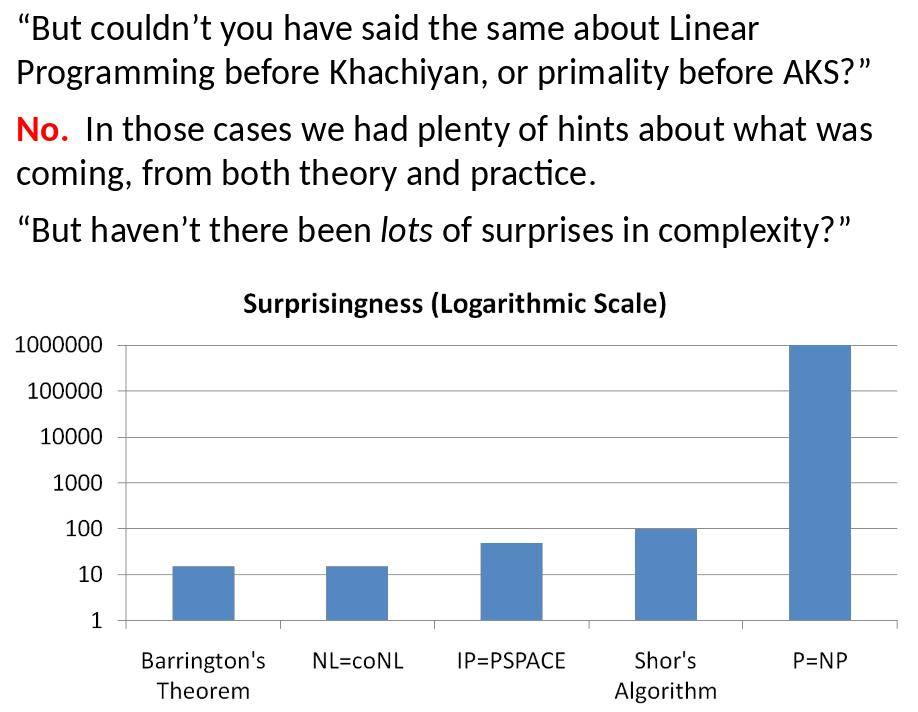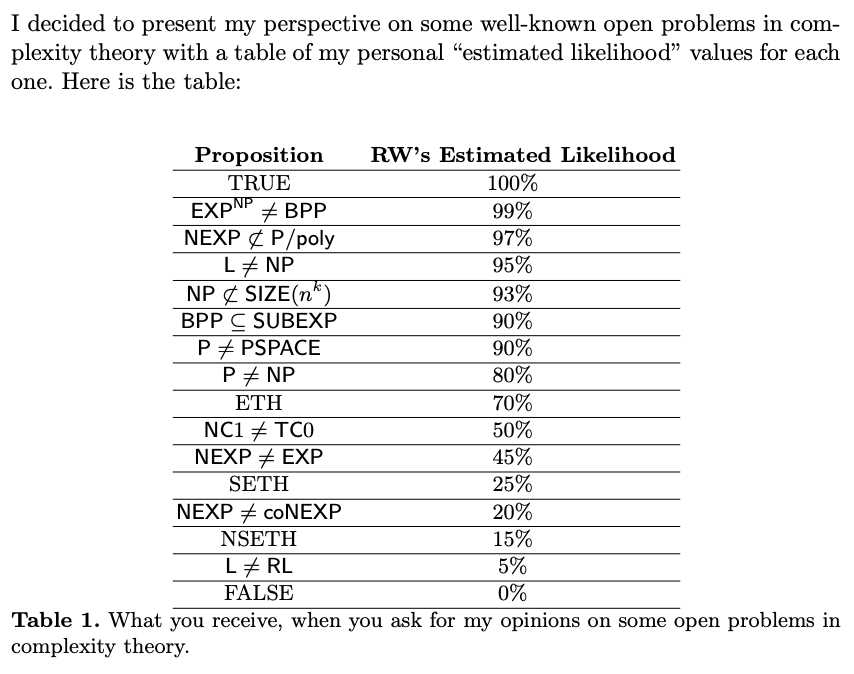I remember reading an article/paper (or perhaps a talk, most probably by Scott Arranson) where he lists the major open problems and their likelihood of being true or false in a table/graph. This is listed along with the 'surprise factor' of each result if its true/false.
I am unable to locate the article though. I wonder if someone remembers the article and can help. I am aware of a similar one by Ryan Williams but I am looking for the other one.
P.S. I know its a silly request. Apologies. But, still need it.


